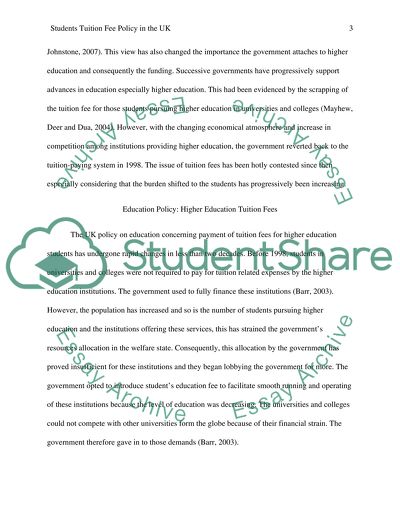Cite this document
(“Student Tuition Fees Policy Essay Example | Topics and Well Written Essays - 1500 words”, n.d.)
Retrieved from https://studentshare.org/sociology/1498628-student-tuition-fees-policy
Retrieved from https://studentshare.org/sociology/1498628-student-tuition-fees-policy
(Student Tuition Fees Policy Essay Example | Topics and Well Written Essays - 1500 Words)
https://studentshare.org/sociology/1498628-student-tuition-fees-policy.
https://studentshare.org/sociology/1498628-student-tuition-fees-policy.
“Student Tuition Fees Policy Essay Example | Topics and Well Written Essays - 1500 Words”, n.d. https://studentshare.org/sociology/1498628-student-tuition-fees-policy.


